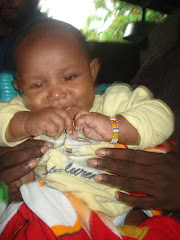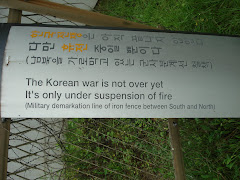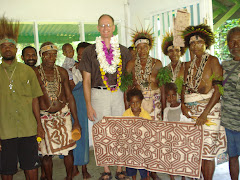Thursday, February 19, 2015
Ecumenical Colloquium of men and women religious “Consecrated Life in Christian Traditions”
CONCLUDING MESSAGE
This message was endorsed by all the participants of the Ecumenical Colloquium
1 - A new experience
For the first time ever the Vatican organized an Ecumenical Symposium on Consecrated Life for more than one hundred men and women religious from various church affiliations – Catholic, Coptic, Orthodox, Anglican, Protestant ... – to get to know each other better and to pray, to share their experiences and to promote Christian unity. This unprecedented meeting, held from 22 to 25 January 2015 during the Week of Prayer for Christian Unity, was an initiative of the Congregation for Institutes of Consecrated Life and Societies of Apostolic Life, in collaboration with two other Vatican Dicasteries: the Pontifical Council for Promoting Christian Unity and the Congregation for the Oriental Churches.
During four intense days, these men and women, all of whom have consecrated their lives to God in the following of Jesus Christ, but with very different forms according to their respective ecclesial traditions, had a powerful experience that filled them with joy. They discovered their deep communion in the same life choices and, at the same time, the enriching variety of its lived reality.
These consecrated men and women are most grateful to the Lord Jesus Christ. They are also grateful to Pope Francis who, by instituting a “Year for Consecrated Life” within the Catholic Church, immediately associated with those who have committed their lives in a similar way in other churches by stating: “I warmly encourage such meetings as a means of increasing mutual understanding, respect and reciprocal cooperation, so that the ecumenism of the consecrated life can prove helpful for the greater journey towards the unity of all the Churches.” (Apostolic Letter to all Consecrated People, 21 November, 2014) .
2 - Multiple discoveries
During this time together the participants received a great deal: an address by the Cardinals who head the three organizing Dicasteries, a presentation of consecrated life in each of the three great traditions and the testimonies of religious brothers and sisters. More than speaking of unity, they experienced authentic unity, by sharing moments of fraternal dialogue and communion with God, in the sharing of experiences and prayer and in communion of prayer, supported by the prayer of numerous contemplative communities.
During these days of meeting and fraternal dialogue, together they discovered:
- what they share in common: a commitment to follow Christ (“sequela Christi”) in ways – whether in community or not – dating back to the early centuries of Christianity, when the Church was still undivided. They recognized the Holy Spirit working in them to increase the gifts of their common baptism. They became more aware of their calling to be “experts in communion”, servants of the reconciliation among all the disciples of Jesus. Consecrated life, at the very heart of the Church, is also at the heart of the Churches’ journey toward unity.
- what distinguishes them: the participants came to better understand, within their own ecclesial tradition, what distinguishes, but does not separate them in any way; for example, in the Eastern tradition the understanding of consecrated life can be understood in various ways.
This experience enhanced two basic truths:
-- That it is when Consecrated persons truly responding to their call as men and women of communion, reconciliation, unity, and mercy as “untiring builders of fraternity” (Pope Francis Message for the opening of the Year for Consecrated Life, 30 November 2014) inspired by the action of the Holy Spirit, that they are servants of communion in their Church and among the Churches. Religious life, yearning for unity with God and with others, particularly when it reconciles diversity and overcomes conflicts, puts into practice the Lord’s prayer “that they all may be one” (Jn 17:21), and thus become a “school of ecumenism.” Holiness – seeking to grow in communion with God and in mutual charity, even unto martyrdom, mixing one’s own blood with that of consecrated persons of the various traditions - is the only way to unity.
-- At the same time, advances in the ecumenical movement have allowed an exchange of gifts between brothers and sisters of the various Churches. This mutual enrichment reflects the experience of many ecumenical communities and interfaith associations of men and women religious.
3 –Renewed perspectives
At the conclusion of this meeting, the participants:
-- hope to see more of this kind of meetings, responding to the call of Pope Francis: “So I trust that, rather than living in some utopia, you will find ways to create “alternate spaces”, where the Gospel approach of self-giving, fraternity, embracing differences, and love of one another can thrive” (Apostolic Letter to all Consecrated People). Such exchange of gifts also requires an adequate formation that needs to be encouraged.
-- returning to their communities and Churches, the participants, greatly enriched thanks to the experience of these days, hope to live their common call to holiness and conversion with their brothers and sisters, which is the only way to unity.
Together they invoke the abundant gift of the Spirit on everyone personally and all together, ever more faithful to God, so that the great desire of Christ for all his disciples and for all humanity be fulfilled as soon as possible “Father, that they may all be one, so that the world may believe!”(Jn 17:21)
Rome, 25 January 2015, on the feast of the Conversion of St. Paul
This message was endorsed by all the participants of the Ecumenical Colloquium
1 - A new experience
For the first time ever the Vatican organized an Ecumenical Symposium on Consecrated Life for more than one hundred men and women religious from various church affiliations – Catholic, Coptic, Orthodox, Anglican, Protestant ... – to get to know each other better and to pray, to share their experiences and to promote Christian unity. This unprecedented meeting, held from 22 to 25 January 2015 during the Week of Prayer for Christian Unity, was an initiative of the Congregation for Institutes of Consecrated Life and Societies of Apostolic Life, in collaboration with two other Vatican Dicasteries: the Pontifical Council for Promoting Christian Unity and the Congregation for the Oriental Churches.
During four intense days, these men and women, all of whom have consecrated their lives to God in the following of Jesus Christ, but with very different forms according to their respective ecclesial traditions, had a powerful experience that filled them with joy. They discovered their deep communion in the same life choices and, at the same time, the enriching variety of its lived reality.
These consecrated men and women are most grateful to the Lord Jesus Christ. They are also grateful to Pope Francis who, by instituting a “Year for Consecrated Life” within the Catholic Church, immediately associated with those who have committed their lives in a similar way in other churches by stating: “I warmly encourage such meetings as a means of increasing mutual understanding, respect and reciprocal cooperation, so that the ecumenism of the consecrated life can prove helpful for the greater journey towards the unity of all the Churches.” (Apostolic Letter to all Consecrated People, 21 November, 2014) .
2 - Multiple discoveries
During this time together the participants received a great deal: an address by the Cardinals who head the three organizing Dicasteries, a presentation of consecrated life in each of the three great traditions and the testimonies of religious brothers and sisters. More than speaking of unity, they experienced authentic unity, by sharing moments of fraternal dialogue and communion with God, in the sharing of experiences and prayer and in communion of prayer, supported by the prayer of numerous contemplative communities.
During these days of meeting and fraternal dialogue, together they discovered:
- what they share in common: a commitment to follow Christ (“sequela Christi”) in ways – whether in community or not – dating back to the early centuries of Christianity, when the Church was still undivided. They recognized the Holy Spirit working in them to increase the gifts of their common baptism. They became more aware of their calling to be “experts in communion”, servants of the reconciliation among all the disciples of Jesus. Consecrated life, at the very heart of the Church, is also at the heart of the Churches’ journey toward unity.
- what distinguishes them: the participants came to better understand, within their own ecclesial tradition, what distinguishes, but does not separate them in any way; for example, in the Eastern tradition the understanding of consecrated life can be understood in various ways.
This experience enhanced two basic truths:
-- That it is when Consecrated persons truly responding to their call as men and women of communion, reconciliation, unity, and mercy as “untiring builders of fraternity” (Pope Francis Message for the opening of the Year for Consecrated Life, 30 November 2014) inspired by the action of the Holy Spirit, that they are servants of communion in their Church and among the Churches. Religious life, yearning for unity with God and with others, particularly when it reconciles diversity and overcomes conflicts, puts into practice the Lord’s prayer “that they all may be one” (Jn 17:21), and thus become a “school of ecumenism.” Holiness – seeking to grow in communion with God and in mutual charity, even unto martyrdom, mixing one’s own blood with that of consecrated persons of the various traditions - is the only way to unity.
-- At the same time, advances in the ecumenical movement have allowed an exchange of gifts between brothers and sisters of the various Churches. This mutual enrichment reflects the experience of many ecumenical communities and interfaith associations of men and women religious.
3 –Renewed perspectives
At the conclusion of this meeting, the participants:
-- hope to see more of this kind of meetings, responding to the call of Pope Francis: “So I trust that, rather than living in some utopia, you will find ways to create “alternate spaces”, where the Gospel approach of self-giving, fraternity, embracing differences, and love of one another can thrive” (Apostolic Letter to all Consecrated People). Such exchange of gifts also requires an adequate formation that needs to be encouraged.
-- returning to their communities and Churches, the participants, greatly enriched thanks to the experience of these days, hope to live their common call to holiness and conversion with their brothers and sisters, which is the only way to unity.
Together they invoke the abundant gift of the Spirit on everyone personally and all together, ever more faithful to God, so that the great desire of Christ for all his disciples and for all humanity be fulfilled as soon as possible “Father, that they may all be one, so that the world may believe!”(Jn 17:21)
Rome, 25 January 2015, on the feast of the Conversion of St. Paul
Monday, February 16, 2015
Ecumenical Ministry
I met the Pope a few weeks ago after giving a speech on the Consecrated Life in the Anglican Tradition. The full text of my speech is posted: www.franciscans.org.uk The whole event was at the invitation of the Institute for the Consecrated Life of the Vatican. We listened to a number of speeches, shared meals and some beautiful prayer: Vespers from the Roman Catholics one night, Orthodox prayers the next night and a beautiful Evensong at the Anglican Church in Rome the last night.
Following my quick handshake with His Holiness I traveled to Assisi, where I have been the Anglican Chaplain at St. Leonard's Church. The Bishop of Assisi allows the Anglicans to use the church. It is full of colorfully painted murals. Unfortunately no heat; that is added incentive to keep my remarks brief!
Subscribe to:
Comments (Atom)






